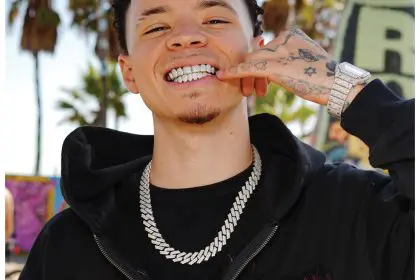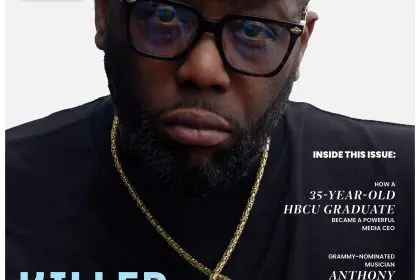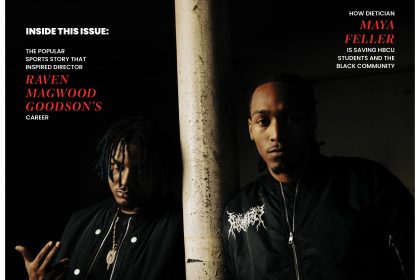But Common is more than a venerated emcee these days. With Selma earning raves, and his acting career is in full flight, he reveals just how much it meant for him to be part of director Ava DuVernay’s project.
“I’m more than honored to be a part of this,” he shares. “This is one of my most fulfilling moments in my life as an artist, actor and as a human being. Dr. King and the struggle is something that I’m very much connected to. And … when we do art like this, it’s an extension of what they did. We’re keeping that dream going.
“I come from the South Side of Chicago. It [has] a rich history of Black culture. [Chicago] was discovered by a Black man. The more I learn my history, the more I have love for myself, love for my community and I love others. It’s not like you can’t love your people, your community and love others, too.”
Common speaks passionately about what it means for him to always keep his heritage in mind when creating art and facing life’s obstacles.
“Getting to know different figures, whether it’s Nat Turner, whether it’s Malcolm X, whether it’s Dr. King or Harriet Tubman — it just gives me more information on who I am and allows me to know that we can accomplish anything,” he says. “And [it’s important] to know the lineage that I come from. My father used to always say that to me: ‘Your bloodline is strong.’ So I’m part of the bloodline and to be able to know that gives me fuel for when things are difficult. So I’m just grateful to be a Black man in America today.”
There are obvious parallels between the turbulent 1960s and what is currently sweeping the country as waves of protest have erupted in the wake of widely publicized instances of police officers killing unarmed Black men, and Common hopes that the younger audiences will make the connections and be inspired to fight injustice.
“We’ve come a long way, we’ve got a long way to go,” he says in regard to the current unrest. “As far as the change in this country and some of the racial prejudices that exist [and] some of the abuse of power; we obviously feel like when you look at some of the scenes in Selma, it’s not too far a picture from Ferguson, Missouri. That’s one [incident] specifically — you can go directly to that and say that you know that a young man being killed at the hands of an officer or someone in authority — like the state trooper that shot Jimmie Lee Jackson or the policeman that shot Michael Brown. It’s not that big of a difference [between the] situations — this is 50 years later and we’re still fighting for justice. And the people of Ferguson are doing it in a nonviolent way, which is very important. And very important that we figure out what we need. And I think Selma is so relevant because it’s art. It’s a film. But it also can effect change and open the eyes of some teenager that’s like ‘Man, they did all that. And I can be a part of something that’s strong and have a value to my life that would mean something beyond my Instagram or beyond just my Twitter followers,’ ” he shares.
















